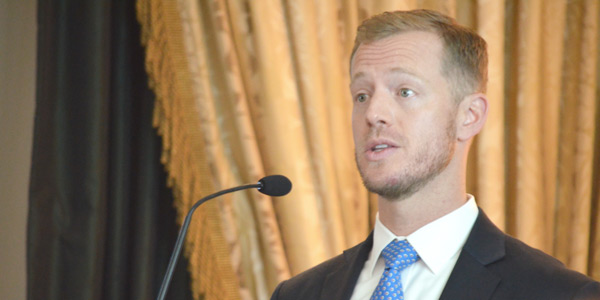By Robert Mullin
Western state utility commissioners on Monday expressed support for providing the Energy Imbalance Market (EIM) Governing Body with increased authority over changes to the market’s governing charter.
The commissioners also agreed on a set of measures that would streamline the process for convening calls and meetings of their own EIM-related group, the Body of State Regulators (BOSR).
BOSR members were scheduled to hold a nonbinding vote on whether to endorse the charter revisions during the April 10 teleconference, but the group fell two members short of a quorum, which requires the presence of commissioners from five of the eight states in the EIM footprint.
In an April 5 memo, CAISO management proposed that any “substantive” modifications to the charter be first presented to the Governing Body for its “advisory” input — similar to the role body members play regarding ISO market rule changes that also affect the EIM. (See EIM Charter Changes Would Give Governing Body More Power.) The ISO initiated the move at the request of Governing Body Chair Kristine Schmidt.
Other revisions would enable the Governing Body to initiate changes to portions of the charter dealing with the BOSR and the Regional Issues Forum.
The Governing Body plans to present the changes to the CAISO Board of Governors, which is charged with reviewing any charter amendments during its May meeting. The board must formally approve any changes to the charter, but in practice it gives wide latitude to the Governing Body’s decisions on solely EIM matters. Timelines dictate that the amendments will advance without the BOSR’s formal endorsement, which is not required.
The state commissioners who spoke on Monday’s call voiced their informal support for the changes. No one expressed any opposition. They were relying, in part, on the advice of the commissions’ staffs.
“The official recommendation from the Advisory Committee is that you approve and support [the changes] to the Governing Body,” said Brian Thomas, policy director with the Washington Utilities and Transportation Commission and a member of the EIM Staff Advisory Committee.
Thomas noted that WUTC Commissioner and BOSR Chair Ann Rendahl — who couldn’t participate in the call because of a schedule conflict — supported the changes.
Changes ‘Make Sense’

Utah Public Service Commissioner Jordan White agreed with the staffs’ recommendation and the CAISO memo outlining the changes.
“It makes sense,” White said. “It’s consistent with how the charter works in terms of certain issues that go to [the] consent [agenda] of the full Board of Governors.”
“I don’t see any reason that we would oppose it, but it sounds like we’re not making any decision today, so I’ll take a look and get back with everyone,” said Oregon Public Utility Commission Chair Lisa Hardie.
White apologized to Schmidt for his group’s inability to provide full approval.
“Thank you very much for going ahead with the discussion,” Schmidt replied. “Because if there were some issues or concerns that any of the Body of State Regulators would have, we would want to know about that.”
The submission of a written recommendation from the Advisory Committee would be helpful to the Governing Body in its own deliberations, she added.
“I can write something up that summarizes what the staff committee did and recommended and provide that to you,” Thomas responded.
Speaking on behalf of the BOSR, White told Schmidt: “We appreciate the opportunity to at least have a say in this.”
‘Willingly Pay’
Commissioners also backed proposals to allow CAISO to post BOSR meeting agendas on the ISO’s website and to use its audio conferencing system to host calls.
Among those voicing support for the move was White, who pointed out that Rendahl and her WUTC staff had been “carrying the water” of setting up the agendas and conducting BOSR meetings.
“We had reached out to [Rendahl] and mentioned that we would be happy to host and just try to take some of that administrative burden off of the group,” said Peter Colussy, CAISO external affairs manager.
“I think we’re comfortable with that,” Hardy said. “It seems like that would functionally work just fine from our perspective.”
“Speaking for the Washington staff that’s been doing this, we would willingly pay CAISO to take over this stuff,” Thomas joked.
The commissioners also endorsed the idea of subsuming the BOSR’s infrequent in-person meetings into those held by the EIM Governing Body.
“I think the jury is still out on how often to have [BOSR] meetings,” White said.
Because of the lack of quorum during the April 10 call, the meeting-related proposals were tabled by the BOSR until its next call on May 30.






